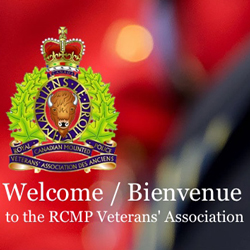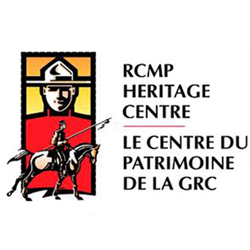Barry Bradley’s Old Newspaper Clippings
Throughout his career in the Force (1960 – 1995), Veteran Barry Bradley developed a newspaper scrapbook containing notable news stories about the RCMP in British Columbia.
Each week, we will post two or three of these old newspaper clippings for the interest of Veterans and their families. For this week’s webpage, Barry is including two articles relating to the murder of three RCMP members in Kamloops BC on June 18, 1962.
Mounties Shoot Down Slayer Of Three Police From Ambush
– (by Tony Eberts reporter for the Vancouver Province Newspaper) – KAMLOOPS – It was high noon at Kamloops when Geroge Booth huddled in the gorgebush and shot it out with RCMP officers Cpl. J. White and Const. J. Belanger and then fell dead to a bullet in his brain.
Three hours earlier Booth, had been in another gun shootout with three RCMP officers and he had killed them with stub-barrelled army rifle.
The three officers, ambushed shortley after 9 a.m., were Const. Elwood Joseph Keck, 25, who came from Gravelbourg, Sask., and joined the force in 1956; Const. Donald George Welsgerber, 23, from Fife Lake, Sask; and Cst. Gordon Eric Pedersen, 23, of Milk River, Alta.
Const. Keck, married, was the father of one child and his wife is expecting her first child. Const. Pedersen had been married only a month.
Veteran officers said the triple slaying was probably the worst tragedy for the RCMP since the turn of the century and certainly worst in B.C.
It all began at the government building in Kamloops when a ragged man left the welfare office and was stopped by Game Warden George Gerguson, who asked him about the rifle he was carrying.
Booth rammed the muzzle of his 303 rifle against Mr. Merguson’s stomach and said “Get the hell out of here or I’ll kill you.”
Mr. Ferguson got into care and drove to the other side of a building where he stopped and called police.
“There wasn’t anything else I could do,” Mr. Ferguson said. “This man llooked as if would shoot without hesitation, so I did what he told me and got away from him.”
A few moments later the three constables arrived at the scene and set out after Booth, who witnesses saw walking up nearby Peterson Creek.
Workers in the government building heard a volley of shots, then saw the bodies of the three officers, apparently shot from ambush before they realized what was happening. Several witnesses saw Booth running up the hillside.
All on and off-duty police and a score of game forestry department men immediately began to search the creekbed and the sun-baked hills south of the city.
Several government surveyors kept the fugitive under observations with their telecopes on their transits.
Two helicopters piloted by Jack Godsy and Howard Hughes swept low over the hilss to aid the posse on the ground.
About an hour after the murders, surveyor Al Smith spotted Booth 11/2 miles from the edge of the city, clambering up the hillside with his rifle still in his hands.
Helicopters were guided to the point by radio and police converged on the sagebrush-covered slope about 2,500 feet up the mountain side.
Then Cpl. White and Const. Belanger heard Booth’s rifle fire less than 30 yards away. Cpl. White, who said he could see only the vague outline of a man in the brush, fired back with his rifle and the constable began firing with his service revolver.
The policemen estimated more than 20 shots were fired in the exchange before Booth slumped to the ground. He was dead when they reached him.
Booth, 32, died as he lived without a friend.
He lived alone in a shack in the small nearby village of Knutford, but did not associate with any of his neighbors nor was he known to have a friend.
He worked at lumber mills and ranches when jobs were available, but was on social assistance much of the time. It is believed Booth was having a dispute with welfare officials and had armed himself when he went to collect his allowance.
RCMP Staff Sfgt. G.L. Simons said the triple killing had shocked not only the police force but the entire city.
“Sometimes you let yourself think that maybe an officer wil be killed on duty but three young men killed at one blow is almost too much to believe,” he said.
RCMP Superintendent J. B. Harris, head of the Kamloops detachment said no apparent motive had been discovered.
Booth was an expert marksman and he cut through the three policemen from a distance with a rapid volley of shots in a wide open area.
“It looks as thoug he started shooting before the constables were within pistol range,” he said. “He stood on a culvert above them and started firing immediately.”
He said the policemen returned the fire and it is believed one of them wounded Booth in the stomach.
Const. Welsgerber, off-duty at the time, was in the office when the call came in and joined the other two officers to check the incident.
Cpl. White, one of the two officers who shot down Booth said he fired in self defence – that he had no grudge against the guman because he didn’t known about the deadly ambush three hours before.
“I know we were hunting some man who had gone beserk with a rifle and a shot a policeman, but I didn’t know he had just murdered three of my fellow-officers and friends,” Cpl. White said.
“It wouldn’t have made a difference if I had known. He started shooting at us and I fired back. That’s all there was to it.”
MOUNTIE’S COURAGE REVEALED: Grabbed For Gun Of Triple Killer
– KAMLOOPS – Consts. D.G. Weisgerber, one of three RCMP officers killed in a gun fight Monday, came with a few feet of seizing gunman George Booth’s rifle before he was shot down, witnesses said Tuesday.
Unarmed and off-duty Const. Weisgerber accompanied Consts. G.E. Pedersen and Const. E.J. Keck to confront the mad killer on the Peterson bridge just south of the city.
Const. Pedersen was killed by the first shot from Booth’s army surplus rifle when they were within 30 feet of the bridge.
Const. Keck scrambled under the bridge, firing almost blindly at the killer who was standing above him.
Rushed Gunman
One of the shots hit Booth in the abdomen, spinning him around and knocking him to the bridge.
Const. Weisgerber rushed the gunman when he saw the rifle fall out of his hands. He was only a few feet away when Booth regained conscousness, grabbed for his rifle and killed the policeman with two shots.
Const. Keck, apparently unaware he had hit the gunman, edged out from under the bridge to get another shot. Booth killed him with a single shot.
The guman was shot down by Cpl. J.W. White and Const. J.A. Belanger several hours later after a posse had tracked him into the hills south of the city.
Story Revealed
The shooting at the Peterson Creek bridge was reconstructed Tuesday by Superintendent J.B. Harris of the Kamloops subdivision after talking to witness.
Several persons in a nearby senior citizens’ hosuing project saw the entire incident.
“The policemen scattered at the first shot,” Mrs. Florence Collins, 74, said. “The man with the rifle stood on the creek bridge and fired at least six times. The policemen were trying to dodge his bullets, and they were firing back.”
Mrs. I.J. MacRae said Booth was running back and forth on the bridge, firing and reloading as he ran.
Inquest Later
Supt. Harris said inquests will not be held until the investigation is completed. A joint military funeral Friday is being planned for three constables.
John Booth, 65, father of the gunman, said his son was a crack shot who could “split a match at 50 yards.”
Monday’s tragedy began when George Ferguson, game warden, stopped the gun-carrying Booth as he left the city welfare office. The warden, who questioned Booth about a gun permit, said the man threatened to kill him.
Once In Hospital
George Booth spent about six months at Essondale Mental Hospital and was discharged in 1957 on special probation to his father, a spokesman said. There was no suggestion that he was violent, the spokesman added.
Monday’s slaying was the biggest single blow any one criminal has ever dealt the RCMP. It was the biggest tragedy since the murder of two constables and a sergeant in the four-day period in 1935. A total of 17 officers have been slain across Canada since 1925.


 May 11, 2014
May 11, 2014 









